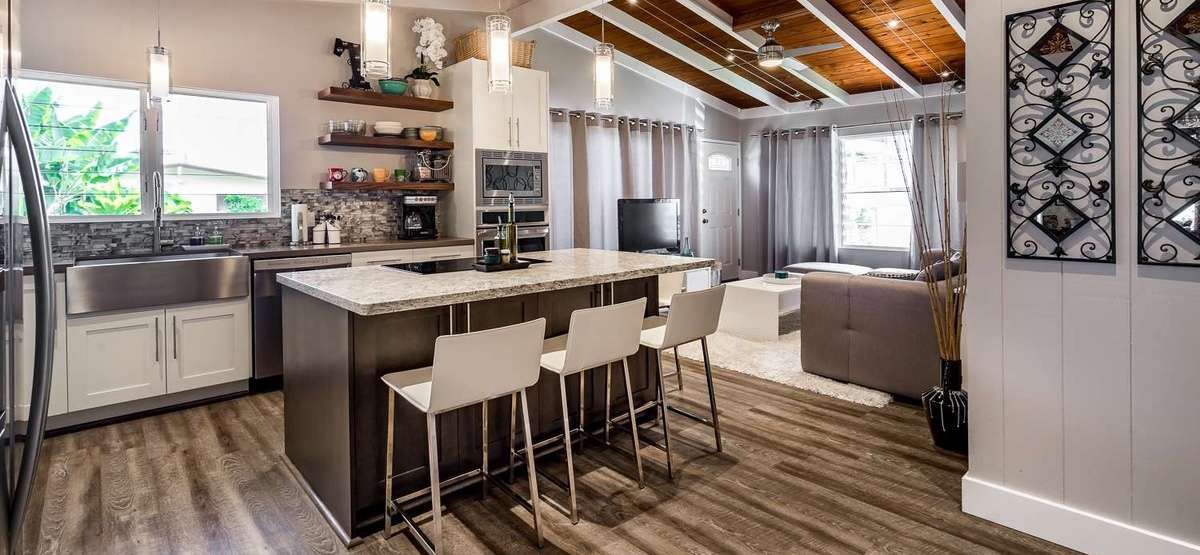
Made Rite’s patented Snap-On baseboard system is composed of PVC baseboards that easily snap on to your wall. Why choose a PVC product? PVC is quickly replacing traditional building materials such as wood, metal, concrete and clay in many applications. Versatility, cost effectiveness and an excellent record of use are contributing to the growth of the use of PVC in construction. Save yourself money, time, and keep your home as free of toxic materials as possible with Made Rite’s Snap-On baseboard system.
Polyvinyl chloride, PVC, is now one of the most popular plastics used in building and construction. It is used in drinking water and waste water pipes, window frames, flooring and roofing foils, wall coverings, cables and many other applications as it provides a modern alternative to traditional materials such as wood, metal, rubber and glass. These products are often lighter, less expensive and offer many performance advantages as is demonstrated through products such as Made Rite’s Snap-On Baseboard System. PVC's abrasion resistance, light weight, good mechanical strength and toughness are key technical advantages for its use in building and construction applications.
PVC is resistant to weathering, molding, chemical rotting, corrosion, shock and abrasion. It is therefore the preferred choice for many different long-life and outdoor products. In fact, medium and long-term applications account for some 85 per cent of PVC production in the building and construction sector. For example, it is estimated that more than 75 per cent of PVC pipes will have a lifetime in excess of 40 years with potential in-service lives of up to 100 years. In other applications such as window profiles and cable insulation, studies indicate that over 60 per cent of them will also have working lives of over 40 years. For areas such as bathrooms that experience continual exposure to water, PVC is a way to keep the space intact.
PVC has been a popular material for construction applications for over five decades due to its physical and technical properties which provide excellent cost-performance advantages. As a material it is very competitive in terms of price, this value is also enhanced by the properties such as its durability, lifespan and low maintenance. When PVC is a choice for your home, there is no comparable alternative.
PVC is non-toxic. It is a safe material and a socially responsible resource that has been used for more than fifty years. PVC has also become the world's most researched and thoroughly tested plastic. It meets all international standards for safety and health for all of the products and applications for which it is used. A discussion of some of the scientific issues concerning the use of PVC by the Commonwealth Scientific and Industrial Research Organization (CSIRO) in Australia concluded in 2000 that PVC in its building and construction applications has no more effect on the environment that its alternatives. Because it is reusable, this makes it the greenest option available for household necessities such as baseboards. You only need to purchase them one time.
Substitution of PVC by other materials on environmental grounds with no additional research or proven technical benefits will also result in higher costs. For example, as part of a housing renovation project at Bielefeld in Germany, it has been estimated that the replacement of PVC by other materials would lead to a cost increase of approximately 2,250 euro for an average sized apartment. Restrictions on PVC use in construction applications would not only have negative economic consequences but also have wider social impacts, such as in the availability of affordable housing.
Like all other organic materials used in buildings, including other plastics, wood, textiles etc., PVC products will burn when exposed to a fire. PVC products however are self-extinguishing, therefore, if the ignition source is withdrawn they will stop burning. Because of its high chlorine content PVC products have fire safety characteristics, which are great for a home as they are difficult to ignite, heat production is comparatively low and they tend to char rather than generate flaming droplets. Keep your peace of mind by using PVC in the areas of your home most likely to be exposed to fire.
There are very good reasons to use PVC products in buildings, since they perform well technically, have good environmental and very good economic properties, and compare well with other materials in terms of fire safety. PVC Snap-On baseboards from Made Rite are reusable, and because of the PVC’s resistance to wear and tear will last you far longer that its wooden competitor. PVC does not conduct electricity and is therefore an excellent material to use for electrical applications such as insulation sheathing for cables. You can conceal cables in any building safely and effectively with Made-Rite’s patented Snap-On baseboard system that is made of PVC.

